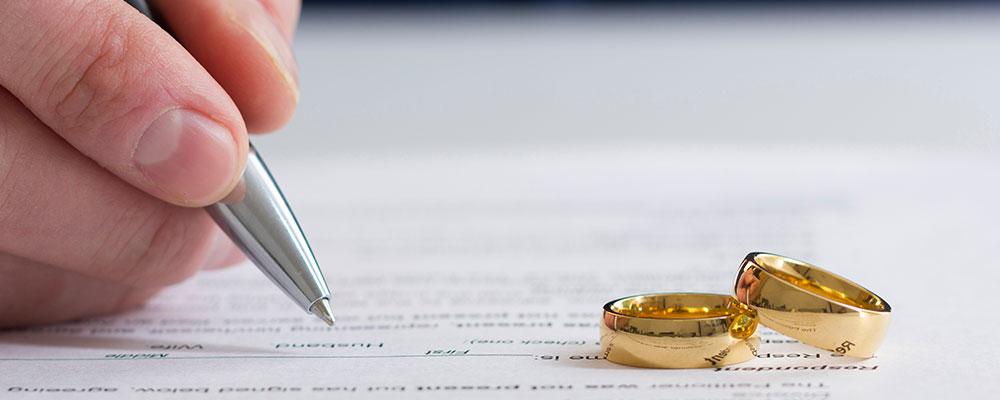
Filing for Divorce as a Dad

Understanding the Divorce Petition and Grounds for Divorce
If you're dealing with relationship problems, you may want to do everything you can to save your marriage. You might try to work out your differences with your spouse so you can remain together, continue to act as partners, and provide a loving home for your children. However, if the rift between the two of you is too deep, divorce may be the best choice for everyone involved, since it will allow you and your children to live in a conflict-free home. As you begin the divorce process, you'll want to understand the steps you'll need to take and the legal requirements that you'll need to meet as you address the issues involved in dissolving your marriage.
Grounds for Divorce
As you prepare for divorce, you'll need to understand whether the laws in your state require you to state the reason you wish to end your marriage. Some state laws specify a number of potential fault-based grounds for divorce, including:
- Infidelity
- Drug or alcohol abuse
- Domestic violence or abuse
- Abandonment
- Incarceration in prison
In addition to these types of grounds, most states allow for no-fault divorce. In these cases, a spouse will simply need to state that they wish to end their marriage because "irreconcilable differences" have led to the irretrievable breakdown of the marriage. Some states have "pure no-fault divorce" laws in which irreconcilable differences are the only grounds allowed. If either you or your spouse does not agree that your marriage is beyond repair, irreconcilable differences may be presumed if you have been separated for a certain amount of time.
Filing and Responding to the Divorce Petition
When either you or your spouse wish to end your marriage, you'll begin the divorce process by filing a petition for divorce. Typically, at least one of you must have lived in your state for a minimum period of time (usually six months) before you can file for divorce, and you may also need to meet residency requirements in your county before filing. A divorce petition will state the grounds for divorce, and it will include the names and addresses of both parties and identify any children you share. The petitioner may also include requests for "temporary relief," which will ask the court to decide how issues such as child custody, visitation, child support, and spousal support will be handled while the divorce is still pending.
After a divorce petition is filed, it will usually be served or delivered to the other spouse (who is referred to as the respondent) by a process server or using another method. The respondent will have a certain time period (usually 30 days) to file a response to the divorce petition. Failure to file a response before the deadline may result in a default judgment in which the court will grant some or all of the petitioner's requests for temporary relief.
Should I Contest a Divorce Petition?
If your spouse has filed for divorce, but you don't agree that your marriage has broken down beyond repair, you may feel that you should fight to save your relationship. However, while it's possible to contest a divorce petition, it's usually not advisable, since it will often just draw out the legal process, resulting in more time in court and higher legal fees. Instead, you'll want to file a response to the divorce petition and take steps to protect your parental rights and your financial interests. You may still be able to work with your spouse to resolve your differences and repair your relationship, but by proceeding as if your divorce will take place, you can be ready for success if your marriage ends.
Whether you are planning to file for divorce or need to respond after your spouse has filed a divorce petition, you'll want to work with a skilled divorce lawyer. Your attorney can help you understand your rights and work with you to determine the best strategy for achieving success in your case.











